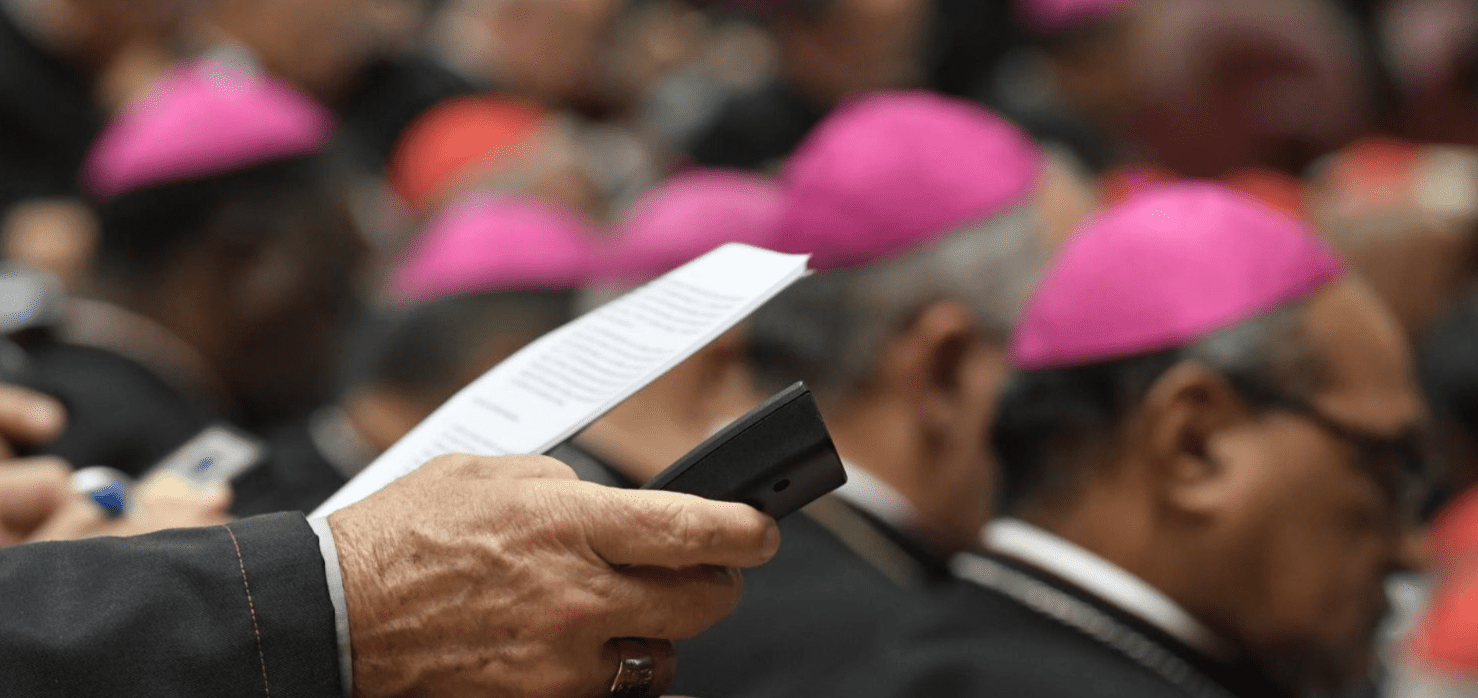
Synod and Synodality are two words doing rounds in Church circles. What does it mean? People are not used to the jargon of words –unfamiliar and difficult to pronounce. Synodality is one such word. Pope Francis officially inaugurated the Synod with a theme “For a Synodal Church: Communion, Participation and Mission” on October 10, 2021. I have listed 9 things you may not know about the Synod on Synodality.
1. What is a synod?
Synod is a meeting of church leaders. The word ‘Synod’ is based on a Greek word meaning journeying together. The idea is rooted in the Acts of the Apostles Chapter 15 in the New Testament.
2. What is Synodality?
Synodality is the way the Synod makes decisions. The model includes listening to a broad range of people, discussing issues to hear the Holy Spirit guiding the Church. Synodality is not about winners and losers. It is about speaking with frankness and boldness, listening humbly and being open to new ideas. In theory, Synodality can embrace any topic and even disagreement is welcome. Synodality is the top priority for Pope Francis.
3. When does Synod on Synodality begin?
The Synod on Synodality is a two-year process from October 10, 2021, to October 2023. The diocesan level listening phase will run until April 2022. A continental phase is scheduled from September 2022 to March 2023. And the last, the Universal Church phase will culminate in the traditional assembly of the Synod of Bishops in the Vatican in October 2023.
4. What is unique about this Synod on Synodality?
Unlike past Synods, the Synod on Synodality is not addressing a particular issue. It is becoming what God wants us to be as a Church – journeying together amid the reality of our times.
The uniqueness is seen for three reasons. It is no longer a one-month Synod of Bishops but a two-year synodal process for the entire people of God. It is a synod that seeks to give a lived experience of synodality, not just questionnaires. The Synod aims to put synodality in practice in the church’s life, not talk about a synod – but working together to move forward.
5. What happens after the Synod of Bishops?
The Synod of Bishops will draft a document and vote, paragraph by paragraph, to approve it. The Pope then uses the document to make informed decisions following the Synod. The goal is to reach a consensus, but it does not mean that what people support will be adopted by the Pope. The Holy Spirit guides the Pope’s decision. It’s not by a majority vote. The decisions are arrived at by a prayerful discernment.
6. Why hold a Synod on Synodality?
Synodality is messy – contrary to the method of command and control. Pope Francis thinks there is a long way to go before the church makes decisions. Pope Francis wants to see synodality at every level. Synod on Synodality is the best way forward for finding out what synodality means in practice. Will Synod on Synodality completely overhaul the church’s top-down decision-making? It may not happen. Pope Francis aims to give an experience for every Catholic in the participation process rather than discerning alone
7. What are the three words for the Synod?
Three words to animate the synodal process are communion, participation, and mission. Communion is about origins and identities. Communion is based on being children of One God – no matter what divides us. Participation involves playing our part in the welfare of others and caring for our common home. The mission is to go forth to listen, learn and love others. The mission is often misunderstood as sent out to destroy the ones who disagree. The mission is to go beyond our religious silos to listen to the Holy Spirit on the synodal journey.
8. What risks should a Synod avoid?
Pope Francis warned that a Synod can be a mere formal event, intellectual and complacent. A Synod is a process of authentic spiritual discernment, not an image building of the church. It’s a process to facilitate dialogue between the priests and the laity. Another risk is Synod becoming an abstract approach to the problems of the church – far from the reality of God’s holy people. Complacency is another risk – saying we have always done it this way. It’s like applying old solutions to new problems.
9. What are the opportunities of the synodal process?
The synodal process offers opportunities for encounter, listening and reflection. The synodal process is to feel at home and participate as a people of God. It’s time to listen first to the Holy Spirit, then to our brother and sisters, and the crisis of faith. The synodal process opens us to see God’s style of closeness, compassion and tenderness – healing broken hearts.
The success of the synod on synodality depends on the capacity to listen and learn. God’s spirit cannot be confined to one particular enclave. Synodality is about people of God, as the African saying says: “If you want to go fast, go alone; if you want to go far, go together.”
About the Author
Feroz Fernandes, a Catholic Missionary, identifies himself as an Uncommon Priest. Father Feroz loves adventure in the apostolate. Check out his debut book The Uncommon Priest: Incredible Stories You Never Read on amazon. And also, the YouTube Channel: Feroz Fernandes promotes a better understanding of scripture.
Thank you for this blog, Fr. Feroz. It helps to hear more about this initiative to recover the synod as a decision-making process. I believe this action is taken in the spirit of the Second Vatican Council. God bless you in your work now. We miss you in Grouard-McLennan Archdiocese. Stay well.